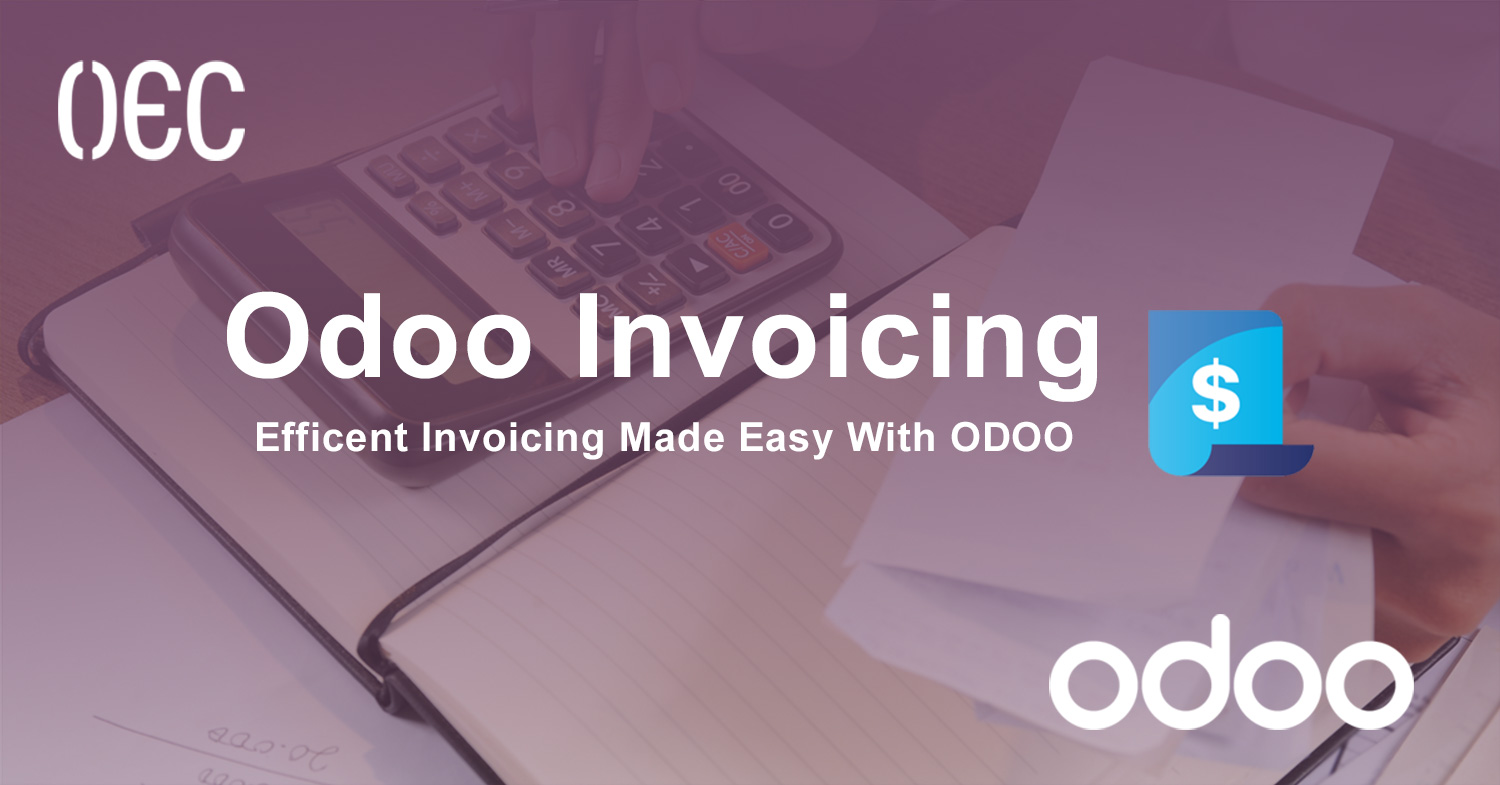Why Odoo Is a Better ERP Than the Rest
If you’ve ever felt overwhelmed by the number of ERP systems out there, you’re definitely not alone. From the big ERP names to newer options promising simplicity, every platform claims to be “the best.” But choosing the right ERP isn’t about picking the most popular—it’s about finding the one that truly fits your business. That’s where Odoo stands out. It’s flexible, affordable, and surprisingly powerful, whether you’re running a startup or managing an established organization.
At OEC, we’ve been working with Odoo for years, helping businesses in different industries digitize their operations. From finance to inventory to HR and CRM, we’ve seen firsthand how Odoo transforms workflows and saves serious time and effort. We don’t just implement Odoo—we believe in it because we’ve seen what it can do.
In this article, we’ll explore exactly why Odoo is a better ERP option than most other systems on the market. We’ll walk you through the key features, benefits, and even a few challenges so you get a clear, realistic picture of Why Odoo Is a Better ERP. If you’re considering ERP for your business—or thinking of switching from a different one—this blog is your friendly guide.
What Makes Odoo Different?
It’s Fully Integrated, Yet Modular
Most ERP systems either try to do everything in one go or force you to work with disconnected tools. Odoo strikes the perfect balance. It offers a fully integrated system across different departments—finance, sales, CRM, HR, manufacturing, inventory, you name it. But the best part? You can start with just the modules you need.
When we first started using Odoo at OEC for internal operations, we only implemented a couple of modules: Invoicing and CRM. Later on, as we grew and needed more tools, we added Projects, HR, and Website Management without any need to switch systems. That’s something not many ERPs offer—scalability without disruption.
No More Clunky Interfaces
We’ve worked with traditional ERP systems that felt like they were stuck in the 90s—complicated menus, hard-to-navigate dashboards, and endless learning curves. Odoo has a clean, modern interface that makes working with it easy—even for team members who aren’t tech-savvy.
One of our clients (we won’t name them, but let’s say they were a medium-sized trading business) had zero digital background. But with just two short training sessions, their team was confidently managing quotations, invoices, and stock using Odoo. The clean layout, drag-and-drop features, and intuitive buttons made all the difference.
Key Benefits of Choosing Odoo
1. Cost-Effective Without Compromise
ERP systems are notorious for being expensive. Licensing, implementation, support—it all adds up. But Odoo flips the script. The Community version is open-source and free to use, while the Enterprise version comes at a reasonable price compared to others in its league.
More importantly, you only pay for the modules you use. That means you’re not throwing money at features your business doesn’t need.
2. Customization Like No Other
Every business is unique, and one-size-fits-all solutions just don’t cut it. Odoo’s framework is built with customization in mind. You can tweak workflows, create custom fields, build dashboards, automate tasks, and even develop your own modules.
With Odoo, you can ada custom multi-level approval workflow in just a few days, saving them hours of manual follow-up each week.
3. Strong Community & Developer Support
One of the reasons Odoo keeps getting better is its massive global community. Thousands of developers contribute to improving it, sharing apps, answering questions, and fixing bugs. That means faster updates, better reliability, and access to a huge pool of knowledge when you need help.
Also, there’s no vendor lock-in. You’re not tied to one implementation partner—you can switch providers, handle support in-house, or collaborate with any Odoo-certified partner around the world.
Odoo vs Traditional ERP Systems
Simplicity vs Complexity
Let’s be honest—most legacy ERP systems are complex. They require heavy training, long implementation times, and specialized IT teams. Odoo is designed to be user-friendly right out of the box. The learning curve is much smoother, and users can get productive in days—not months.
Flexibility vs Rigidity
With Odoo, you can adapt the system to your business, not the other way around. Older ERPs often force companies to change their processes to match the system. That’s backwards. Odoo supports your workflow, even as it evolves.
Common Business Problems Odoo Solves
Disconnected Tools and Data Silos
Many businesses run on a mix of Excel sheets, WhatsApp messages, and manual processes. It works… until it doesn’t. Odoo brings everything under one platform—no more jumping between tools or chasing down documents.
For example, a typical workflow can go like this: a lead comes in through your website (Odoo Website), your sales team follows up (Odoo CRM), closes the deal (Odoo Sales), generates an invoice (Odoo Invoicing), and tracks delivery (Odoo Inventory)—all without leaving the system.
Manual Work and Delays
If your team spends more time updating sheets than doing actual work, it’s a problem. Odoo automates repetitive tasks like sending payment reminders, managing payroll, scheduling follow-ups, and even generating reports.
That frees up your team to focus on what actually matters—serving customers and growing the business.
Lack of Real-Time Insights
Odoo’s built-in reporting tools give you real-time data on performance. From sales targets and inventory levels to employee attendance and profit margins, you always know what’s happening.
Odoo Grows with Your Business
This is one of the things we admire most about Odoo—it grows with you. Whether you’re running a team of 5 or 500, the platform scales without needing a total overhaul.
You can start with CRM and Invoicing today. A year later, add HR, Accounting, and Projects. Down the line, if you decide to launch an eCommerce store, your website and backend can all be managed in Odoo too.
We’ve seen this journey play out over and over again. It’s not just flexible—it’s future-proof.
Challenges? Yes—But They’re Manageable
No system is perfect, and Odoo does come with some learning moments. For instance, while the platform is user-friendly, some modules (like Accounting or Manufacturing) might require setup by someone experienced.
Also, since Odoo is customizable, inexperienced developers can overcomplicate things if they don’t follow best practices. That’s why choosing the right implementation partner is key.
Who Should Use Odoo?
Odoo works especially well for:
-
Small to medium businesses looking for affordable digital transformation
-
Startups that want to grow quickly without switching systems later
-
Enterprises needing customized ERP solutions
-
Companies tired of outdated systems or disconnected tools
It’s ideal for companies in sectors like:
-
Trading & Distribution
-
Retail & eCommerce
-
Services (Law firms, Marketing, HR)
-
Manufacturing
-
Education & Nonprofits
Why OEC Is the Right Partner for Your Odoo Journey
At OEC, we’ve been helping companies implement, customize, and grow with Odoo for over 9 years. We understand that no two businesses are the same—and that’s why we never use a copy-paste approach.
What sets us apart:
-
We listen first. We take the time to understand how your business works before proposing any solution.
-
We customize smartly. We don’t overbuild or sell you modules you don’t need. We design a system that’s lean, efficient, and scalable.
-
We provide training and support. Your team won’t be left guessing—we train, guide, and walk with you every step of the way.
-
We bring real experience. We’ve worked with companies across different sectors, and we know what works—and what doesn’t.
Whether you’re new to ERP or looking to migrate from an older system, OEC can help you make the move smoothly. Our mission is simple: make digital transformation feel easy, not stressful.
Ready to Explore Odoo with the Right Team?
Odoo might be the better ERP—but when it’s implemented by a team that actually understands your needs, that’s when it becomes the best ERP for your business.
Let’s talk about how we can tailor Odoo for your goals and to understand Why Odoo Is a Better ERP.




